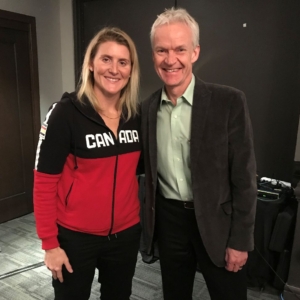When my daughters were planning their careers, I referred them to a quote from American philosopher and civil rights leader, Howard Thurman: “Don’t ask what the world needs. Ask instead, what makes you come alive. Because what the world needs is for you to come alive.”
There lies within every person a place where, when connected to it, we feel deeply and intensely alive. When we are in this place, there is a quiet voice inside that says, “This is the real me.” Where we lose all track of time. Where we don’t tire or need anyone to motivate us. In that place we are calm, creative, compassionate, committed, and capable. We’re accountable because we know that what we are doing matters and makes a difference. This is the place you find your mojo.
When we discover this place of authenticity in our work, it is called a vocation. When our life’s calling lies outside of our paid work, we call it an avocation. Both have validity and energy.
As leaders committed to creating authentic workplaces where people are engaged, loyal, committed, and accountable, we can help people discover their “real me.” Start by asking:
- What makes you come alive?
- What matters to you?
- What is your own personal why, and how is this organization supporting you to realize that why?
- How can we together create a place where you love to work?
- What do we need from each other to take care of each other?
One of the primary barriers to finding our authentic voice is the reactive structuring of our lives. Allowing our to-do lists and the demands in our inbox to drive our activities ensures that the expectations of others will crowd out authentic discovery and expression. Combine this with the noise of a distracted world and you’ll eventually realize, in the light of time’s perspective, the vital task we’ve pushed aside – the task of leading a life aligned with our heart.
As we emerge from a summer of rest and fresh perspectives, there is an opportunity to reset the compass of our lives, develop a new structure for staying on track with our authenticity, and recreating a workplace aligned with our true nature.
Here are a few actions to consider:
- Set aside time to ask the questions (outlined above) of yourself. You must be intentional and deliberate about discovering your authenticity. You can’t leave it to chance.
- Shift from the list/reactive method to a boundaried focused approach to your work. While you may have parts of your day checking off your to-do list and responding to the expectations of others, block out time each day for uninterrupted focus on what truly is important to you and to those you love and serve.
- Assess your mental fitness plan. Many of us have a physical fitness plan, but few have a strategy and accountability plan for strengthening our mental fitness.
- Create a community of support and inspiration. Whether in the form of guides, coaches, confidants, or accountability partners, we all need to know we aren’t alone. Authenticity is a lonely journey, and it can’t be done alone.




